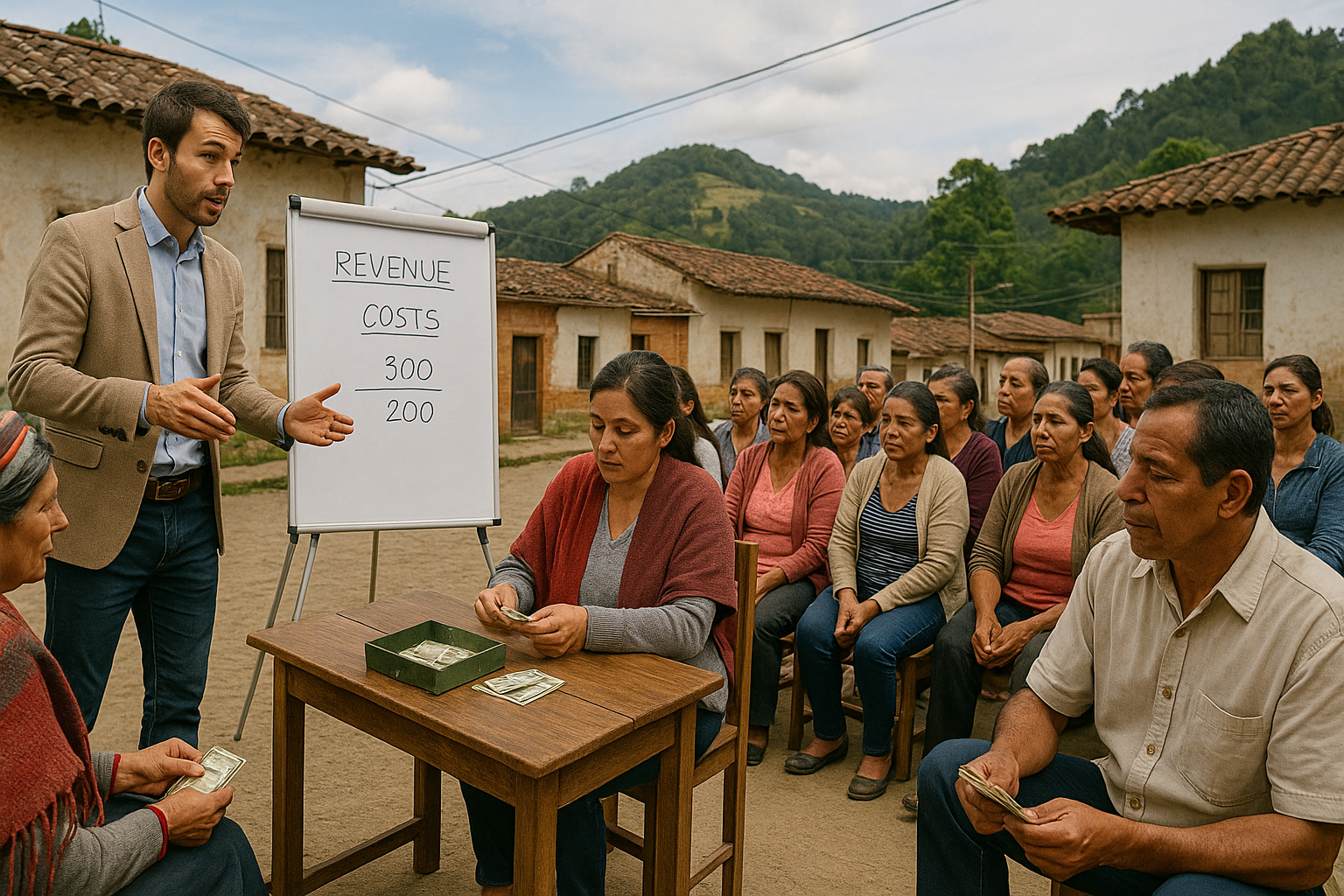Outcomes-Based Financing: A New Era for Economic Inclusion and Public Accountability
The report explores how Outcomes-Based Financing (OBF) is revolutionizing economic inclusion programs by linking payments to measurable results, enhancing accountability, and driving innovation. Case studies from Colombia, India, and East Africa demonstrate its potential and challenges in scaling sustainable impact.

Outcomes-Based Financing (OBF) is emerging as a powerful tool for transforming economic inclusion programs across the globe. A new report, authored by Mara Aroldi, Celeste Brubaker, Sebastian Osorio, and Juliana Outes Velarde, brings together research and implementation insights from the Government Outcomes Lab at the University of Oxford, Village Enterprise, Instiglio, and the Partnership for Economic Inclusion (PEI) at the World Bank. It paints a compelling picture of how governments in countries like Colombia, India, and across East Africa are leveraging results-driven funding to create sustainable impact. Drawing on data from the Government Outcomes Lab’s INDIGO Impact Bond Dataset and Instiglio’s Results-Based Financing (RBF) Database, the report outlines how strategic financial structures tied to measurable results can reshape development financing.
How Outcomes-Based Financing Works
At the core of OBF is a simple but transformative principle: money flows only when agreed-upon outcomes are achieved. Rather than paying for inputs or activities, like training sessions or awareness campaigns, governments and donors commit to disbursing funds only after specific, verified results, such as job retention or income increases, are met. This model encourages accountability, aligns incentives across all stakeholders, and promotes adaptive program design. The framework is built on four foundational principles: measurability, accountability, incentivization, and flexibility. Instruments used under this model include performance-based contracts, social and development impact bonds, and social impact guarantees. Among these, impact bonds have gained the most traction globally, involving third-party investors who fund the programs upfront and assume the risk if outcomes are not met.
Colombia Leads with Employment Innovations
Colombia stands out as a pioneer in institutionalizing OBF in Latin America. Faced with high levels of poverty and unemployment, the Colombian government launched its first Social Impact Bond, Empleando Futuro, in 2017 through the Department for Social Prosperity (DPS). The program targeted vulnerable groups, including conflict victims and the long-term unemployed. The DPS partnered with local philanthropic investors and global organizations such as the Inter-American Development Bank Lab and the Swiss Secretariat for Economic Affairs. Corporación Inversor, a nonprofit impact asset manager, served as an intermediary to manage financial flows and performance risk. The model worked: of the 2,032 participants, nearly 900 secured employment, and over 600 retained their jobs for at least three months. A subsequent bond, implemented in Cali, delivered even stronger results with lower costs, confirming the model's effectiveness.
Colombia's success didn’t stop there. The government embedded OBF principles in its National Development Plans (2018–2022 and 2022–2026), launched a public Outcomes Fund, and rolled out new impact bonds targeting maternal health and tech upskilling. Local governments in Bogotá and Bucaramanga have also embraced the model. Bogotá’s OBF-driven employment program alone facilitated over 28,000 job placements, signaling a significant shift in how public policy is funded and evaluated.
India’s Skill Impact Bond Breaks Gender Barriers
India has also emerged as a frontrunner in adopting OBF for large-scale skilling and employment programs. The Skill Impact Bond, launched in 2021, targeted 50,000 low-income job seekers, with a strong focus on increasing women’s workforce participation. The National Skill Development Corporation (NSDC), a public-private body under the Ministry of Skill Development and Entrepreneurship, played a dual role as investor and performance manager. The British Asian Trust coordinated the project, while global philanthropic funders, including the Michael & Susan Dell Foundation and HSBC India, provided outcome-linked funding.
The program was structured around three outcomes: successful training completion, job placement within two months, and job retention for at least three months. As of late 2024, results from four training cohorts showed high success rates, with over 89% of women certified and nearly 60% retaining jobs for at least three months. India is now piloting a digital monitoring system that integrates directly with employers and government systems, promising to further reduce transaction costs and enhance transparency.
East Africa’s Graduation Model Shows Scalable Results
In East Africa, Village Enterprise implemented the first impact bond focused explicitly on poverty graduation, targeting ultra-poor households in Kenya and Uganda. The program delivered entrepreneurship training, seed capital, and mentorship. With funding from donors like USAID and the UK’s Foreign, Commonwealth & Development Office, the Development Impact Bond reached 95,000 individuals and yielded a projected $21 million in lifetime income gains, over four times the cost of the program. An independent randomized controlled trial by IDinsight confirmed the program's success. Investors earned an 8.3% internal rate of return, higher than initially projected.
The report also notes how Village Enterprise adapted its model to incorporate flexibility clauses and outcome-linked payments that better reflect on-the-ground conditions. While COVID-19 disrupted some evaluations, the program demonstrated resilience and led to important lessons about linking payments to intermediate milestones and using locally sourced data for rapid feedback.
Promise with Caution: OBF’s Future in Development
While OBF offers a promising path forward, it is not a one-size-fits-all solution. The report identifies key limitations, including the complexity of public procurement systems, political instability, underdeveloped data infrastructure, and limited financial capacity among service providers. Moreover, the high administrative costs of evaluators, intermediaries, and contract management can sometimes outweigh benefits, especially for small-scale projects. Nevertheless, when implemented under the right conditions, OBF can lead to better governance, smarter resource allocation, and long-term development gains.
To expand the use of OBF, the authors call for further research, better cost-effectiveness evaluations, and institutional capacity-building. Governments, they argue, should adopt OBF selectively, targeting programs with clear, measurable goals. If supported with the right regulatory frameworks, transparent data systems, and a culture of accountability, outcomes-based financing could become a cornerstone of inclusive economic development in the decades to come.
- FIRST PUBLISHED IN:
- Devdiscourse










